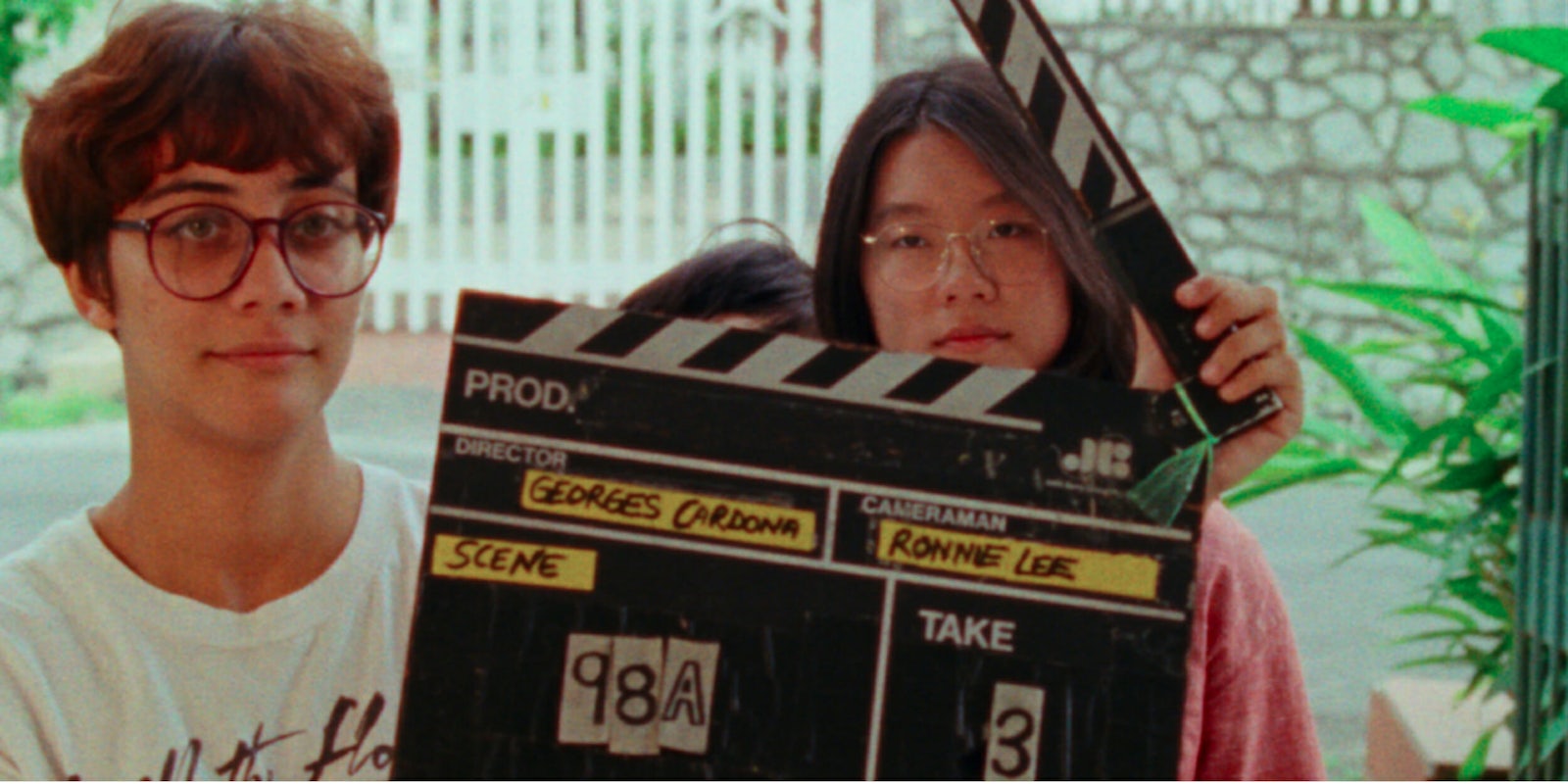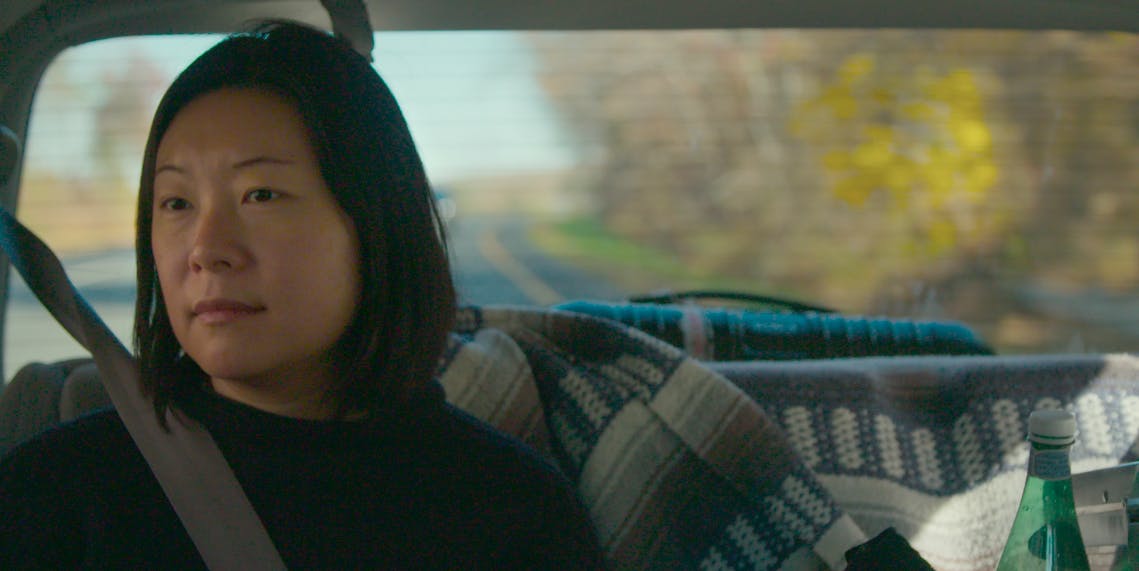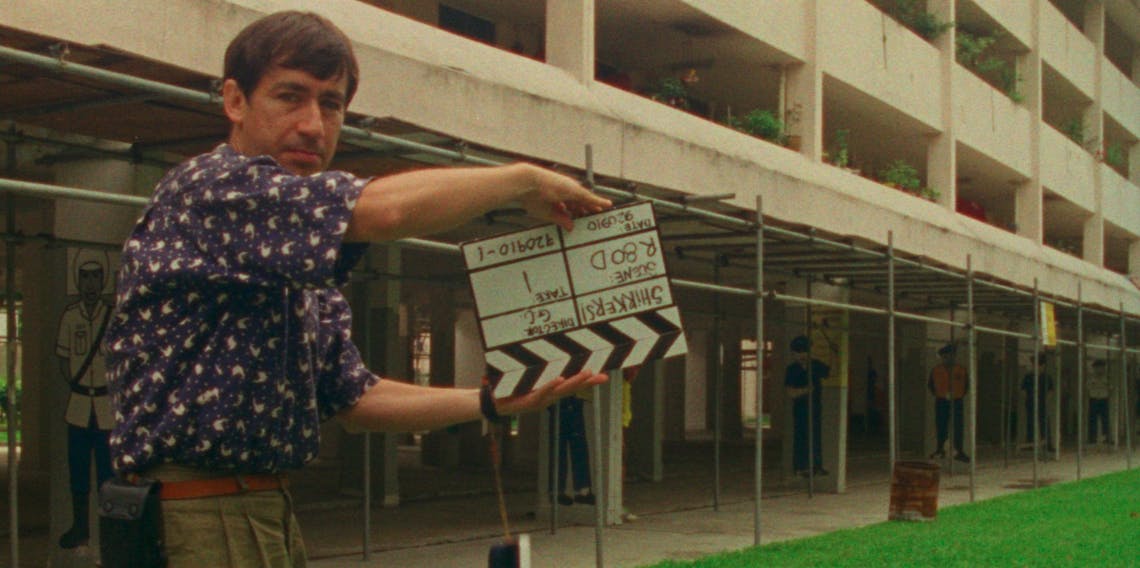Sandi Tan’s Shirkers—the name of her 1992 debut film and the documentary about its fateful production—is a study in memory and performance, as well as the complexities of women’s friendship and creativity.
In 1992, Tan and friends Jasmine Ng and Sophie Siddique gathered in Singapore to film Shirkers, Tan’s low-budget road movie starring her as a killer named “S.” Colorful images from the movie, miraculously recovered after more than 20 years, provide bursts of context throughout the documentary, offering a look at the curious movie that might have been a cult hit, had director Georges Cardona not disappeared with the footage.
Before the doc pivots to Cardona and becomes a more complex exploration of obsession and ego, Tan (who also narrates the doc) tells of her upbringing in 1980s Singapore, where chewing gum was banned and big-budget Hollywood films weren’t accessible. She and Ng, her one-time “nemesis,” were restless, rebellious teens who figured out how to watch a bootleg copy of Blue Velvet. They started their own zine called The Exploding Cat. They loved movies and wanted to make them. Ng and Siddique appear in the film for present-day interviews, a raw, stark contrast to their teenage selves.
Tan says the making of Shirkers created something of a “secret history” between friends, a bond that serves as the foundation of the doc. But Cardona is a vexing character. As their film instructor, he taught them about French New Wave and drove them around late at night while Tan filmed. She admits spending time with a married man twice her age raised some eyebrows, even if it was platonic. But she trusted him enough to let him direct her film, even calling him her “partner in crime” at one point.
Shirkers doesn’t dive too deep into Cardona’s pathological personality, but it does make it clear that he had a talent for imprinting his tastes on the people he befriended. One woman told Tan that when she collaborated with Cardona, it was to “work on his dreams,” not hers. Several times, Tan admits that the movies he admired—like Werner Herzog’s Fitzcarraldo—became her favorites. Cardona told her he was the inspiration for James Spader’s voyeuristic character in Sex, Lies, and Videotape, though that’s later revealed to be another part of his grift. Cardona was predatory, but in a more esoteric way: He seemed to want people’s dreams, and one day he disappeared with Tan’s.
In one striking montage, Tan says that she tried to forget about her lost film in the ‘90s, but then she started seeing elements of it in new films like Rushmore and Ghost World. Indeed, parts of Shirkers feel quite Wes Anderson-esque; in some alternate reality, Tan influenced him. In 2011, Tan receives a life-changing email from Cardona’s widow about her surviving footage; when the two meet in Louisiana, Tan discovers this woman was a victim of his con, too.
Shirkers certainly falls into the movie-about-a-movie genre, but it has the distinction of its creator’s unique perspective. It adds to the film’s weight, and now this “lost” movie exists in a totally different space. Ng reminds her that she was an “asshole,” something Tan admits. But Ng and Siddique both reiterate how toxic Cardona was, which Tan might still be working through. They all have slightly different memories of him, though that could just be his lies finally adding up.
Tan’s narration could have been cut back in parts to allow some images to speak for themselves; a shot of the postcards the girls sent each other is a quick thrill. The doc is a bit disjointed, but ultimately it reflects the spirit of the time, before the weight of adulthood pushed three friends in different directions. These teenage girls made something that elbowed against a restrictive culture and could have opened up a whole new wave in film. But it became something even more distinctive, especially within the current conversation about the suppression and erasure of women’s art.
Still not sure what to watch tonight? Here are our guides for the absolute best movies on Netflix, must-see Netflix original series, documentaries, docuseries, and movies.
Need more ideas? Here are our Netflix guides for the best war movies, documentaries, anime, indie flicks, true crime, food shows, gangster movies, Westerns, and movies based on true stories streaming right now. There are also sad movies guaranteed to make you cry, weird movies to melt your brain, and standup specials when you really need to laugh. Or check out Flixable, a search engine for Netflix.





